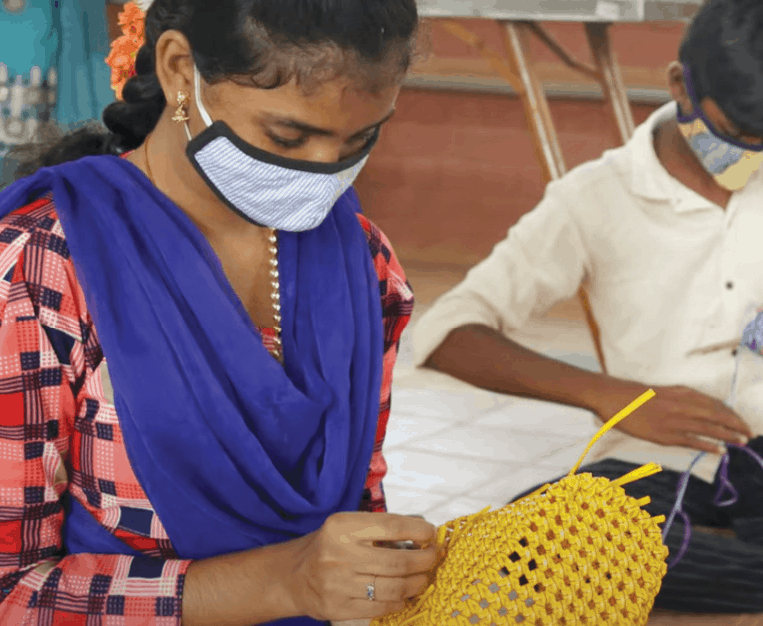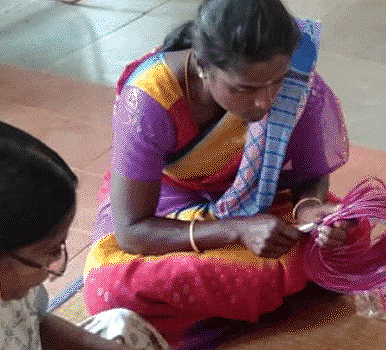
We are in Coimbatore, a city in southern India. In 1991, the Bala Shanti Program was founded: a project that helps and welcomes the most vulnerable and needy children, aged 3 – 5, and their mothers, who are often alone. The program is part of Shanti Ashram, an international center for cultural, social, and health development serving the needs of the community in the area, inspired by the ideals and teachings of Mahatma Gandhi.
“My grandmother had to live on her own all the time, which is why my mother stopped studying when she was in secondary school and had to get married when she was 16. This happened in ’78, but today, after more than 40 years, I still hear stories similar to this one.” These are the words of Deepa, head of the Bala Shanti Program. She explains that, even today, the children of abandoned mothers experience three challenges: poverty, dropping out of school, and early marriage. The Bala Shanti Program, therefore, aims to help these women bring up their children in a state of well-being, health, and dignity.
According to the United Nations Women 2019-2020 report, about 4.5% of families in India are composed of single mothers, and an estimated 38% of these families live in poverty. Deepa explains: “A woman in India alone, and in a vulnerable condition, can hardly hope to survive: it is not a personal choice, many of them find themselves in conditions of neglect, insecurity, and exploitation.”
The ultimate goal of the Bala Shanti Program, therefore, is to fight poverty, malnutrition, and diseases that develop in contexts of great hardship, building a society of peace. In addition to financial aid, children and their mothers are also trained in education, peace, nutrition, hygiene, and leadership.
Today, there are 9 Bala Shanti Kendra – early childhood development centers – which welcome more than 200 children a year. Since 1991, more than 10,000 children have completed their education, and during the past year amid the COVID-19 pandemic, aid was provided to 15,000 children and families.

Since 1998, the project has been collaborating with AFN (Action for New Families), a non-profit organization linked to the Focolare Movement, which, through its Support-at-a-Distance program, helps to provide children with scholarships at the Bala Shanti Program.
Many who could testify to the importance of the Bala Shanti Program in their own lives, like Fathima, now aged 45. Until a few years ago, she was a single parent in financial difficulty and did not know how to raise and educate her son, little Aarish. Since the Bala Shanti Program started to help, her life has changed. Aarish went through training courses and received a scholarship. She explains, “I was also helped with food supplies. They put me in touch with competent doctors and invited me to shows and dances through which I could be entertained and think about something beautiful. This was very important for me.” Today Aarish has grown up. He is now 15 years old and has been a volunteer at Shanti Ashram for three years. Also, thanks to his help, the Bala Shanti Program will offer more and more support to abandoned women and their children. Thus, there is much hope that this chain of aid will become stronger and more widespread.
Laura Salerno




